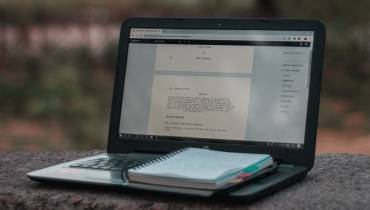7 Ways to Cope as a Retiree During the Pandemic

The novel Coronavirus has shaken the employment sector to its core, leaving many workers stranded and financially unprepared. This especially includes workers who are approaching retirement as well as those who have already retired.
Concerns about the effects of stock market gyrations on retirement savings and pensions are everywhere ever since the market dropped by 3000 points.
Roughly 50% of Americans aged 55 and above are left with little to no financial savings for their lives after retirement. Even those who have managed to put some money in investment portfolios are dealing with high levels of uncertainty and a constantly changing trading landscape.
If you are a retiree going through this stressful situation and looking for ways to cope, here are effective ways to deal with the changing circumstances and better prepare for the future.
Don’t be Rigid
In a crisis like the pandemic, it is important for you to be as flexible as possible. Even if you were planning to retire in the current or next year, consider holding it off a couple more years.
In the meantime, look around for any more opportunities that might be available to you. You will probably be able to claim your Social Security benefit later on.
So, if you haven’t reached your full retirement age, delaying it is your best option. That way, you will have more time to save and allow the situation to normalize.
Do Your Research
If you have some tied up investments, don’t panic. First, do your homework and check if your investment mix falls under the category of age-appropriate and low-risk bonds and equities.
If your investment portfolio is on autopilot and backed with a plan that periodically rebalances it with your age, you’re in luck.
Be as Liquid as Possible
This means you need to have enough cash on hand that would be enough to pay your monthly bills. This will prevent you from dipping into your retirement accounts and offer sufficient financial freedom for the coming months or years.
Anyone who is nearing retirement should set aside an emergency fund to deal with unexpected circumstances. Though having extra cash in your emergency reserve is a good idea, cashing out completely might be the wrong move.
In times of high certainty, you might be tempted to cash out completely in fear of losing out. This pushes you to lock in whatever losses you have already incurred.
Panicking is not the way to go in situations like these, as it could put you in a self-destruct mode. This happens when you restrict yourself to a smaller retirement pot, leaving you with less time to make up for it.
Check for Any Old Pensions or 401(k) Plans
Ensure that you do not have money left from any old pensions or 401(k) from past employers.
Individuals who have moved their retirement accounts from old to new employers tend to forget about that money.
Take Your Social Security Early
There is no harm or shame in taking your social security earlier, especially if you are running out of other options. You can start to claim your benefits at the early 62. But before you do that, keep in mind the downside of doing so.
The main disadvantage of taking social security payments early is the reduced monthly payments that you will receive. However, if your income falls under a certain bracket, the complete amount of your Social Security payments may be tax-free.
You can use these social security payments to finance fixed and nondiscretionary expenses. On the other hand, use your retirement fund for discretionary expenditures like travel and leisure.
If your retirement savings and social security payments are not sufficient, consider options like Medicaid and Supplemental Security Income.
Bridge the Gap to Medicare
The Bridge plan is intended for people aged 60 to 95 who are waiting for their acceptance to participate in the US Medicare System. You can also look for plans that fall under the Affordable Care Act.
In general, if your earnings are insufficient, you might be eligible to receive premium tax credits as well as other benefits.
Look at the Bigger Picture
Early losses in your retirement fund can end up impacting your total savings. However, if you can leave that amount intact and instead use an emergency reserve (as discussed above), your savings will have time to recuperate.
This will gradually happen as markets pass through the pandemic crunch and return to equilibrium.
Relax & Unwind

Once you have looked into all your possible options, it is best to just relax. Worrying and stressing about the situation will only affect your attitude and response to the upended retirement. Stewing resentment and idleness only fuels unproductivity.
Take out some time to unwind by reconnecting with old friends or taking up a hobby. Indulge in therapeutic activities like gardening or yoga to help calm you down during this stressful time.
Doing so will allow you to think more clearly and enable you to invest that energy into coming up with better solutions.
Get rid of the routine and rather looks for ways to liven things up. Do not allow grief to immobilize you by indulging in healthy and fruitful activities.
In Conclusion
Just like past epidemics, the effects of COVID-19 on the financial markets, employees, and retirees will eventually wane. So, rather than getting tied up in the short-term complexities, look at the bigger picture and try to stay positive.






















